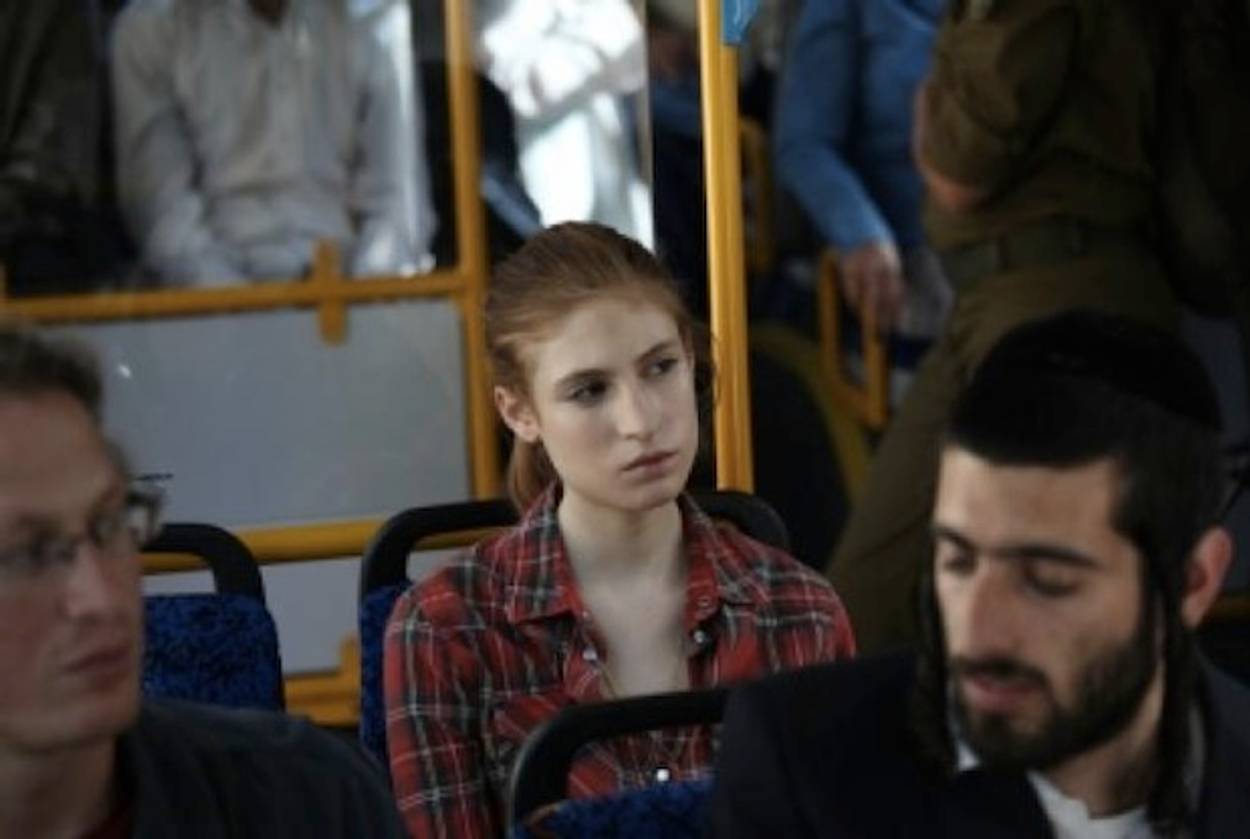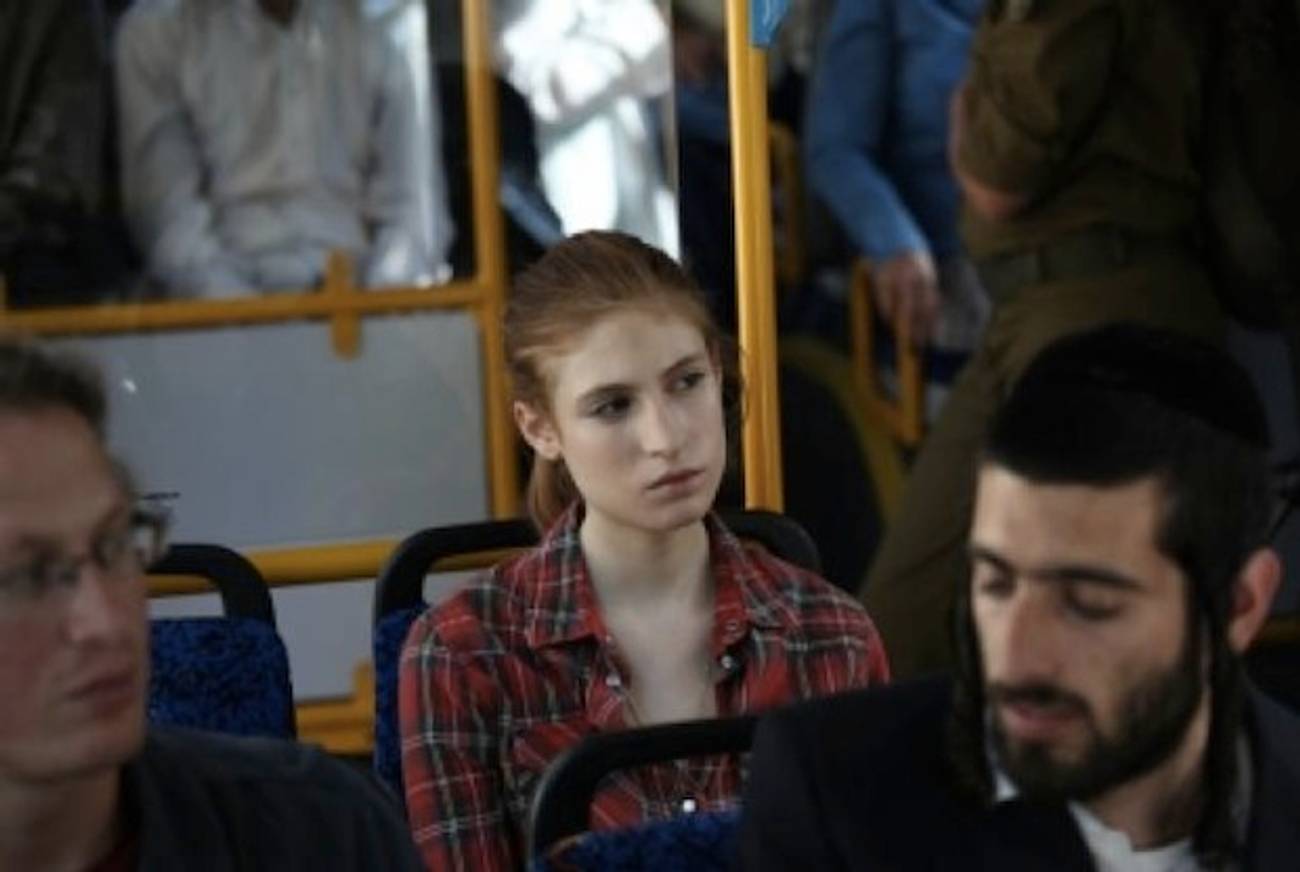My Mom’s Film Review: ‘A Bottle in the Gaza Sea’
The first in a semi-regular series




A Bottle in the Gaza Sea (Une Bouteille À La Mer), directed by Thierry Binisti and produced in France and Israel, screened at the Houston Jewish Film Festival last month. (Marjorie Ingall wrote about the acclaimed novel for Tablet back in 2010.) The standard synopsis of the movie reads:
Tal is a 17-year-old French woman who has settled in Jerusalem with her family. She writes a letter expressing her refusal to accept that only hatred can reign between Israelis and Palestinians. She slips the letter into a bottle, and her brother throws it into the sea near Gaza where he is carrying out his military service. A few weeks later, Tal receives an e-mail response from a mysterious “Gazaman,” a young Palestinian named Naïm. And thus begins a turbulent but tender long-distance friendship between two young people who are separated by a history they are trying both to understand and change.
If you believe that any movie that shows the hardships that exist in Gaza is a pro-Palestinian movie, then skip this one. On the other hand, if you feel that there is never enough sympathy for the Israelis who face the threat of random missile and suicide bombers, then you, too, should skip it. From the start of the movie, with Tal’s nightmare, reliving the Hillel Café bombing, to the end when Tal and Naïm realize that they cannot yet connect, the movie presents the torment of being in both sides of a war zone. This drama proves that when going to a serious movie, it is essential to watch the movie, watch, as in pay attention.
Tal’s nightmare is her motivation for writing the letter; she is trying to understand why there cannot be peace, and how this fact shapes her life. When riding on a bus, Tal gets off because she is uncomfortable with the package a man across the aisle is holding. Finishing school, the army, the future all seem out of kilter. The nightly news shows her people running to shelters and bombed buses.
Naïm, who gets the letter, is introduced just hanging out at the beach, seeming to have no palce to go and nothing to do. Until his communication with Tal inspires him, Naïm has a dead end job for this uncle. He is beaten by thugs, who patrol Gaza and who seem to be in control of the streets, because someone suspects he is spying for Israel. Later, when Naïm is riding with his cousin in a car down a city street, more of these men are at a street checkpoint. In a telling moment, as they approach, Naïm and his cousin stop singing along with the radio and turn the radio off. In that moment it is clear that life in Gaza has no room for free expression. Naïm is also harassed by his extended family for trying to continue his education, again, not a positive note for Gaza. Yet, these two young people connect and communicate. They develop concern for one another.
It is worth nothing that the voices that ranted because it was deemed pro-Palestinian did not claim that it was anti-Israel. A subtle distinction but it may be hopeful. Perhaps, despite their prejudice, they were able to see something else in the movie – two young people, reclaiming hope.
Earlier: The Better Book Club
Adam Chandler was previously a staff writer at Tablet. His work has appeared in the New York Times, the Wall Street Journal, the Atlantic, Slate, Esquire, New York, and elsewhere. He tweets @allmychandler.